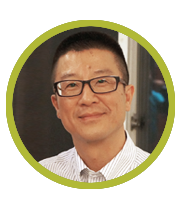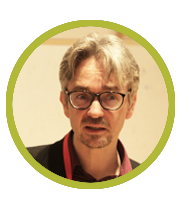Keynote Speeches
International Keynote Speeches
In order to expand the international vision and enhance the interaction and exchange in the field of museum research, two scholars from different countries and different specialties are invited to give a keynote speech respectively; List of invited international scholars and their backgrounds are shown below (provisional):
Keynote Speech I
The New Grassroots Scholarship : Possibilities and Challenges of Collaboration between Grassroots Scholars and Academics(Pre-recorded video and live Q&A session)

Keynote Speaker: 菅豐(SUGA Yutaka)
Job Title: Professor at the Institute for Advanced Studies on Asia, the University of Tokyo.
Area of Specialization: Folklore, Public History, Intangible Cultural Heritage Management, Vernacular Art, and Animal Cultural Theory
Professional Experience:
2014–2020, Member, Science Council of Japan
2004–2006, 2010–2014, 2017–2020 Director, The Folklore Society of Japan
2020–2021 Committee, Festival of Agriculture, Forestry and Fisheries
2021–2022 Culture Creative Analyst, Agency for Cultural Affairs
Abstract:
At the end of the 20th century, publicness and the theory of civil society began to gain traction. Since then, humanities and social sciences scholars have attached importance to public issues. Such awareness led to the emergence of public folkloristics, public history, public anthropology, public sociology, and public archaeology. Public museology is one of these disciplines. These disciplines have one thing in common: They are the windows to academia, allowing scholars to share knowledge with the public and inviting citizens of various backgrounds to participate in dialogues with the scholars. This movement in academia is what I call "the new grassroots scholarship."
The disciplines of the new grassroots scholarship are similar in their development and traits. One distinct trait is the emphasis of collaboration. Collaboration has been regarded, since the second half of the 20th century, as the best way of exchanging ideas among people from different backgrounds in various social activities. Hence, collaboration has attracted much attention. In addition, with its development, modern civil society has been laying stress on civic engagement in social governance. With the emphasis on civic engagement, collaboration is incorporated in all kinds of decision making, civic activities, and the design of myriad activities. Collaboration has now become an integral and valued element of many social practices.
However, in reality, government has merely pretended to promote the idea of collaboration and yet continued setting forth limits on authority of nongovernmental organizations or citizens. One example is government’s response to the 2011 Tōhoku earthquake. Soon after the disaster, the Japanese central government seemed to learn a lesson and collaborate with locals. They set up the Great East Japan Earthquake and Nuclear Disaster Memorial Museum in Fukushima. The museum launches a Firsthand Storytelling activity, allowing local narrators to share their first-hand stories with oral history. Unfortunately, the narrators are restricted from speaking the truth during the activity. In today’s speech, the speaker will introduce the entire incident. The story shows that the museum does not embody the idea of smooth and successful collaboration between government and citizens.
In the speech, I will first reiterate the significance of the new grassroots scholarship and shared authority. Through this lens, I will examine problems raised by government-led public history. The issues are important not only to public history but also to public museology.
The New Grassroots Scholarship : Possibilities and Challenges of Collaboration between Grassroots Scholars and Academics(限時公開:11/14-11/28)
Keynote Speech II
Museum Diversity and Its Evolution. Issues and Challenges of Museum Publicness(Pre-recorded video and live Q&A session)

Keynote Speaker: François Mairesse
Job Title: Professor of Museology, Economics of Culture, Holder of UNESCO Chair for the Study of Museum Diversity and its Evolution (2019–) at Sorbonne Nouvelle (Paris)
Area of Specialization: Museology, Economics of Culture
Professional Experience:
2012– Associated member, the Royal Academy of Letters, Sciences and Fine Arts of Belgium
2013–2019 President, the International committee for museology of ICOM (International Council of Museums, ICOFOM)
2009–2012 Member, the Royal Academy of Letters, Sciences and Fine Arts of Belgium, Class « Technologie et Sociétés »
2002–2010 Director, the Musée Royal de Mariemont, Scientific establishment of the French–speaking Community of Belgium, Morlanwelz, Belgium.
Representative Publication:
-Mairesse, François, B.N. Aboudrar et L. Martin, 2021. Géopolitiques de la culture. Armand Colin.
-Mairesse, François, F. Van Geert, 2021. Écrire la muséologie. Sorbonne nouvelle.
-Mairesse, François, 2020. Gestion de projets culturels. Armand Colin.
-Mairesse, François, 2019. Zbynĕk Z. Stránský et la muséologie. Une anthologie. L’Harmattan.
-Mairesse, François, B.N. Aboudrar, 2018. La médiation culturelle. PUF.
-Mairesse, François, J. Le Marec. 2017. Enquête sur les pratiques savantes ordinaires. Le bord de l’eau.
-Mairesse, François, A. Monjaret éd., 2017. Accueillir et surveiller. Les métiers du gardien de musée. La Documentation française.
-Mairesse, François dir., 2016. Nouvelles tendances de la muséologie. Documentation française.
Abstract:
The notion of public is twofold for the museum: it immediately evokes the question of the users or those for whom the institution is intended, but it also concerns, by virtue of its public (as opposed to private) character, the obligations of the museum within the public sphere. This raises questions of accessibility, social inclusion, or openness to cultural and public diversity. This role has evolved particularly in recent years, as evidenced by the discussions around the definition of the museum. In fact, it would perhaps be as appropriate to talk about museum diversity than about the diversity of the public, as the institution has been transformed to respond to increasingly diverse issues.
Museum Diversity and Its Evolution. Issues and Challenges of Museum Publicness(限時公開:11/14-11/28)